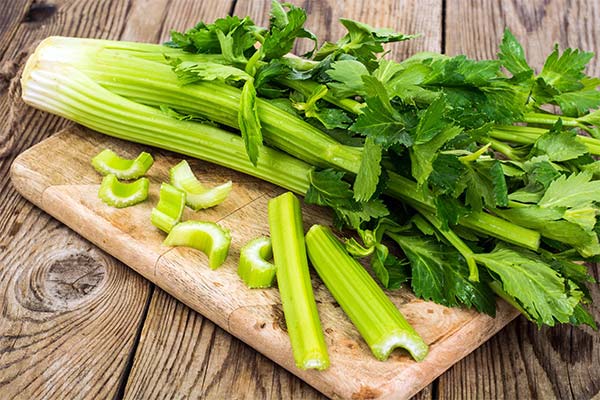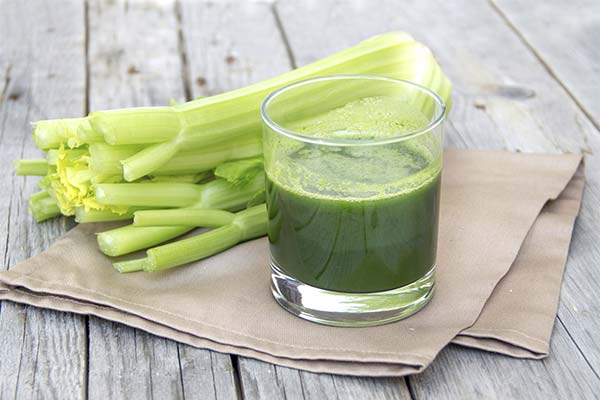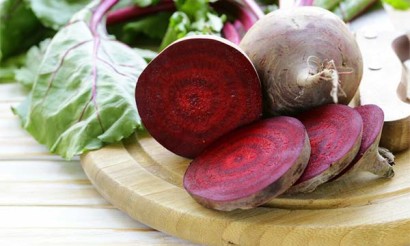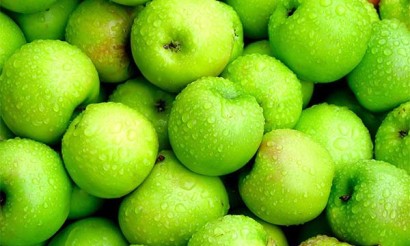Celery in pregnancy: benefits and harms
Flavorful celery has long been an integral part of our diet. This green vegetable has a pleasant taste and a rich composition. Culinarians around the world prepare ordinary dishes and exquisite masterpieces with it. Celery blends seamlessly into soups and salads, is served as a side dish and included in drinks.
- Can you eat celery during pregnancy
- In the 1st trimester
- In the 2nd trimester
- In the 3rd trimester
- How to eat celery correctly
- How much you can eat per day
- You can eat celery at night and on an empty stomach
- The benefits of celery during pregnancy
- General benefits
- Root
- Petiole
- Leaf
- Is celery juice useful during pregnancy
- Can celery harm the future mother?
- Rules of celery use during pregnancy
- What are the dangers of celery during pregnancy
Of course, such a useful product attracts nutritionists, especially since the nutritional value have absolutely all parts of the garden crop. But when it comes to the possibility of including celery in the diet of pregnant women, nutritionists do not always welcome such a decision, although they do not exclude such a possibility.
Let's try to understand why nutritionists and doctors are wary of the presence of celery in the menu of pregnant women. We will also try, based on scientific evidence, to find safe options for the use of this useful vegetable.
Is it possible to eat celery during pregnancy
Let's start with the controversy that is observed in the ranks of experts. Nutritionists have a special attention and love for celery. This vegetable crop is often included in the dietary diet of weakened and sick people. The product is quickly assimilated and its rich composition serves as an excellent support for strengthening the immune system.

But obstetricians and gynecologists evaluate the product by other criteria, believing that for a pregnant woman, this spicy vegetable will do more harm than good. The fact is that the product contains a large number of phytoestrogens and essential oils, which can provoke an abortion, regardless of the term of gestation. Given such serious risks, doctors advise expectant mothers to refrain from eating celery. After all, other representatives of vegetable crops are also rich in vitamins and minerals. Therefore, it is not difficult to find a worthy alternative to spicy roots.
Probably, the opinion of doctors in this matter is crucial, if we take into account all the risks for the mother and the fetus. However, some women, contrary to advice and common sense, still introduce small portions of celery into their daily diet. There is no denying that in some pregnant women this experience is quite successful, but most expectant mothers as a result of such experiments end up in a hospital bed with a threat of miscarriage. And often they do not even suspect that the culprit of their deplorable condition was celery. Unfortunately, doctors do not always manage to save the pregnancy.
If the situation with the possibility of internal use of celery root is cleared up, the question of external use remains open. It must be admitted that in this direction, for pregnant women, there is complete freedom of action, but with few restrictions. As far back as in ancient times celery was considered a universal medicine. This herbaceous biennial plant has not lost its medicinal purpose even today. Cosmetologists have also paid attention to this unusual vegetable. Therefore, the future mothers can take care of their appearance by taking celery as an assistant. Let's analyze the possible uses of the popular vegetable at different stages of pregnancy.
In the 1st trimester
Among medics, there is another controversial point: some experts (their minority) believe that in the early stages of pregnancy, dishes with celery can be consumed, but most doctors do not recommend doing this, since the risk of fetal loss is too high. If a woman decides due to circumstances to include the vegetable in her diet, then the daily portion should not exceed 2 tsp. The use of celery in the first trimester is allowed in the following situations:
- severe and persistent migraines;
- nervous breakdowns, irritability;
- severe sleep disturbances;
- gastritis at the initial stage;
- varicose veins of moderate severity.
Of course, that introduce such a controversial product as celery into the diet, the future mother can only after the approval of the doctor.
Warning: If possible, it is better for pregnant women not to use this vegetable. It is possible to choose a safer option to solve the problems.
In the 2nd trimester.
For the middle of pregnancy, the same recommendations remain. Only in extreme cases, you can use celery for internal consumption. We must not forget about the risk of developing later allergic reactions in the child, if the mother will eat a vegetable rich in the content of essential components during pregnancy.
In what form is celery allowed to be consumed? If a woman has no history of threatened miscarriage or regressive pregnancy, and her current condition is not a cause for concern, the stems and roots can be used to make
- soup;
- puree;
- casserole.
In the 3rd trimester.
In the last trimester, in the absence of contraindications, doctors may recommend adding celery to the diet only just before the birth. The green vegetable is especially useful in cases where a woman is overpregnant. Practice shows that a small portion of fresh vegetable is able to start the labor activity. Such a natural way to stimulate labor is much safer than medications. But this option is possible only if the process is controlled by medics. Spontaneously accelerate labor is unacceptable, because such self-intervention can lead to tragic consequences.
How to use celery correctly
During gestation at any stage of pregnancy celery is allowed to be consumed internally in the following situations:

- As a natural sedative, celery perfectly copes with insomnia, which especially often accompanies the second half of pregnancy. The spicy vegetable in small quantities relieves anxiety and excitability. As a medicine, the juice is used, diluted with water in a ratio of 1:3. Take the medicine before dinner for a few days.
- To stimulate labor activity, you can increase the portion of celery, adding the vegetable to everyday food once a day, preferably in a salad or mashed potatoes. The stems and root are good for this purpose.
Note: No independent action should be performed by the mother-to-be. Only a doctor observing the pregnancy will be able to assess the condition of the woman and determine the optimal dosage of the dangerous product for her. Perhaps a specialist will find a worthy substitute for celery. For example, beets contain a lot of fiber and vitamins, but they are absolutely safe for the woman herself and the fetus.
External use of the vegetable itself, as well as the juice is allowed during pregnancy almost without restrictions, if the woman has no allergies.
Options for use:
- To treat wounds and cuts, an infusion of celery roots and leaves can be prepared. The cooking scheme is as follows: chopped fresh root (1 tbsp.) and leaves (2 tbsp.) mix, put in boiling water (1 cup). Cover the container with a lid. Infuse the solution to treat wounds for 2 hours. Then it can be used for compresses, lotions. The duration of the procedures is 20 minutes. Celery instantly relieves irritation, soothes pain, stops bleeding and accelerates tissue healing. This universal remedy can be used for bruises and sprains.
- For pain in the lower back and joints, which often accompany the second half of pregnancy, celery will also be useful. But in this case, on the basis of the vegetable you need to prepare an ointment. The preparation is simple: you need to grind the leaves with a blender to a pulp, and then mix with petroleum jelly (25 g). The resulting composition to rub the sore spots before going to bed. Instead of petroleum jelly you can use softened butter. Store the preparation in the refrigerator.
- For cosmetic purposes. Pregnancy is not a reason to abandon self-care. On the contrary, during this period, the condition of the skin, nails and hair deteriorates. Given the risk of using store creams, celery is ideal for home procedures to eliminate all kinds of cosmetic defects. For this purpose, freshly squeezed juice of the plant is most suitable. It can be added to masks or treated instead of washing the skin. Procedures with frozen juice give an excellent rejuvenating effect. They tone and refresh the dermis, smooth out wrinkles and tighten the facial oval. By the way, celery juice is excellent for treating acne and pimples.
Important point: The use of celery for external treatments during pregnancy is completely safe, if the woman does not have an individual intolerance to the product and a tendency to allergic manifestations.
How much you can eat per day
We would like to remind you that it is forbidden to eat celery in its raw form for pregnant women. Most often it is added to mashed potatoes. The optimal portion is determined at the rate of 1 kg of mashed potatoes - 2 tablespoons of celery. Appear questionable vegetable in the menu of a pregnant woman should not appear more than twice a week. Such a rate is considered safe in the early term, because it does not allow a high concentration of harmful components in the body of the future mother. If the doctor recommends including celery in the diet in order to stimulate labor activity, the portion can be larger, but the amount of spicy product is also determined by a specialist taking into account the condition of the woman.
Useful to know: During lactation, celery should not be eaten because it depresses it up to the complete cessation of breast milk production.
Is it allowed to eat at night and on an empty stomach
Since strict restrictions apply to pregnant women, the possibility of consuming any part of celery in its fresh form is not even considered. That minimum portion that the doctor will allow the future mother under special circumstances, you can consume after heat treatment for breakfast. It is best to add the vegetable to other dishes. Before going to bed, you can also consume celery.
The low-calorie product (only 13 kcal) and high fiber content will benefit digestion and help normalize stools. Essential oils will calm your nervous system and help you fall asleep quickly. Thus, the future mother can choose a convenient option for herself. Of course, if there are problems with sleep, it is better to use a natural sleeping pill before a night's rest.
The benefits of celery during pregnancy

The useful properties of celery are difficult to overestimate. It is no coincidence that this unique vegetable constantly attracts the attention of research. It is true that this interest allowed the research to establish the exact composition of the popular vegetable crop. The chemical formula of the product is a unique vitamin and mineral complex with the addition of a huge amount of fiber. The product contains:
- carbohydrates;
- fats;
- a group of vitamins B, A, K, E;
- acids: ascorbic, folic, nicotinic;
- dietary fiber;
- minerals: calcium, phosphorus, sodium and other elements;
- organic acids;
- Lutein - a special substance with antioxidant activity.
Depending on the variety, the composition of celery may vary, but still the main groups of substances are present in the structure of the vegetable of any variety.
Common benefits
At the very beginning, we have already noted that celery is not too desirable product in the diet of pregnant women. But if the doctor finds it necessary to make such an exception, then the body of the future mother will receive a powerful additional support in the form of a complete set of nutrients.
In addition, the well-balanced composition of the vegetable has the following beneficial effects on the body of the pregnant woman:
- regulates the level of harmful cholesterol;
- Improves intestinal peristalsis;
- stimulates the digestive processes;
- relieves swelling, as it has diuretic properties;
- cleanses the body of toxins;
- regulates the stool;
- improves metabolism;
- At the cellular level inhibits the aging process;
- normalizes the cardiovascular system;
- lowers blood pressure;
- strengthens the immune system.
But the main benefit that a future mother can count on is to solve problems with sleep. Celery even as part of simple dishes has a rather strong sedative effect. Therefore, it is often called "antidepressant vegetable". Since during pregnancy practically any drugs for women are strictly prohibited, a natural sleeping pill will help to quickly solve this widespread problem.
Separately, we would like to note that celery is considered an ideal product for dietary weight loss. True, future mothers face completely different tasks, but a useful vegetable with its low caloric content will prevent the gain of excess weight, which is also important.
This is interesting: In the pharmacological industry celery is part of many sleeping pills.
If the future mother loves celery so much, and the doctor allowed as an exception one or two times a week to prepare vegetable dishes that are safe for the baby, she only has to decide on the most useful part of the plant. It should be noted at once that celery of any variety is a universal product, because all of its parts are considered edible. There is only a slight difference in the composition.
Root
The roots of the spicy vegetable are suitable for all culinary purposes. They are baked with other vegetables, stewed with meat, added to salads. Many housewives pickle nutritious roots. True, such a delicacy for the diet of a pregnant woman is not suitable in any way. But soup with beef or chicken broth with the addition of a small portion of grated celery root can be included in the menu. The vegetable goes well with tuna and other fish. In short, even with very strict requirements for the diet of a pregnant woman, there is still room for choice.
Celery
Many women love to eat celery stalks in raw form. Especially interested in this part of the vegetable crop are those representatives of the fair sex, who are busy with their own figure. The juicy stalks can be used to prepare a fat-burning cocktail or a light vitamin salad. But such gastronomic extravagances for pregnant women are prohibited. Therefore, it is better to limit the consumption of boiled vegetables, which can also be added to a salad of allowed products. To minimize the threat of miscarriage, you can put only 2 tablespoons of celery per 1 kg of cooked dish. Of course, such a paltry amount may cause surprise, but it is enough to enrich the diet with the necessary vitamins and mineral elements.
Leaf
Boiled celery leaves are unlikely to retain the same flavor appeal as fresh herbs. Therefore, it is better not to use this part in its fresh form during pregnancy, especially since you can find a decent substitute among other greens. For example, an excellent alternative would be spinach, which also has a lot of vitamins and folic acid. There is a lot of iron in sorrel.
Is celery juice useful during pregnancy?
Celery juice is a highly concentrated plant extract. Even quite healthy people are not safe to take such a rich product inside, not to mention women who are pregnant. Celery juice contains a lot of essential oils, ascorbic acid and phytoestrogens. When taken internally, such a cocktail has an irritating effect on the mucosa of the esophagus and stomach, and can also provoke a miscarriage. Therefore, such nectar is best used for home cosmetic procedures.

If it is impossible to replace celery juice with a similar product, a pregnant woman can take no more than 50 ml of the drink, diluted in three parts of water or other vegetable juice (carrot, pear).
How to get juice
For this purpose, it is best to use a blender or juicer. But you can simply grate the vegetable on a grater, and then squeeze the juice. The drink should be consumed immediately after preparation.
Celery juice in cosmetology
To rejuvenate and nourish the skin of the face, you can prepare a mask from celery juice (2 tbsp.), the same amount of potato or corn starch and honey (1 tsp.). Melt the honey, add celery juice and starch. The resulting composition to apply to the skin. Hold the mask for 15-20 minutes, then rinse with warm water. After the procedure apply a nourishing cream.
Whitening mask. This recipe will help women who with pregnancy appeared pigment spots on the face. You need 2 tsp. Add 1 tablespoon of celery juice to the sour cream, mix everything, add 0.5 teaspoon of lemon juice. Apply the mask to the face, paying more attention to problem areas. After half an hour, rinse the composition, and ice the face.
Can celery harm the future mother?
If we summarize all of the above, we can conclude that only absolutely healthy women can eat celery during pregnancy. And the portions of the vegetable product should be minimal. As for contraindications, the list includes the following conditions:
- Increased uterine tone at any term;
- Other signs of fetal abortion;
- a history of a history of complications: miscarriages, premature births, regression of pregnancy;
- Severe toxicosis;
- ismic-cesmic insufficiency;
- gastrointestinal diseases;
- varicose veins;
- epilepsy;
- renal abnormalities;
- individual intolerance.
In addition to the direct contraindications, the ban on the use of celery during pregnancy is also due to the fact that celery contains substances that increase the formation of gas. Such a condition will cause discomfort to a woman, which will certainly have a negative impact on the condition of the developing fetus.
Rules for the use of celery during pregnancy

- It is allowed to introduce the spicy vegetable into the diet of the future mother only after prior consultation with a gynecologist.
- Consume dishes with celery in small portions and not more than 2 times a week.
- If there are contraindications, it is necessary to give up the vegetable at all, even if before pregnancy it was always present in the diet.
- The first 10-12 weeks, when the uterus is still often in tone, it is better to give up eating this dangerous vegetable. The first three months of gestation are considered the most unstable, so the risk of miscarriage is very high.
- In its pure form, celery should not be eaten. It is best added to vegetable dishes, soups or salads.
- To prevent flatulence, the vegetable should be boiled in broth until the structure is completely softened.
- During the last three months it is necessary to limit or even eliminate celery from the diet, so that the baby does not have future allergies.
- Pregnant women are strictly forbidden to drink celery juice and to eat vegetable assortments where it is present.
The above recommendations apply only to the use of celery as a food or by ingestion of medicines prepared on its basis. There are no restrictions for external use.
Addendum: Immediately after giving birth, you should not rush on celery, too, because while breastfeeding the baby, this vegetable is also on the "black list". When the time comes to wean the grown baby, celery will help in this difficult matter.
What are the dangers of celery during pregnancy
At the very beginning, we have already mentioned the risk factors for the inclusion of such a controversial product as celery in the future mother's diet. In order to clarify this issue, it is worth dwelling on the peculiarities of the physiology of the female body during pregnancy, as well as the nuances of the chemical composition. In the biological structure of the vegetable, there are two groups that can negatively affect the course of pregnancy and the fetus. These are essential oils and phytoestrogens - plant analogs of female sex hormones.

In celery is a very high concentration of essential components, so the product is among the natural aphrodisiacs that increase sexual activity by increasing the blood flow to the pelvic organs. It is clear that such phenomena during pregnancy are not only undesirable, but also very dangerous. In addition, essential oils are considered to be powerful allergens. They can penetrate the placenta, affecting the fetus, which does not yet have an immune system. Therefore, there is a high probability that after birth the baby will be prone to allergic reactions.
Phytoestrogens increase blood circulation, increasing uterine spasticity, which is fraught with premature birth or spontaneous abortion. The risk of such a scenario persists throughout pregnancy.
Conclusion
Undoubtedly, celery is a very useful product with excellent taste characteristics. The vegetable is rich in vitamins and valuable amino acids, it has a lot of micro- and macroelements, fiber and other substances necessary for the normal functioning of the body. But in addition to useful components, the natural product contains elements that pose a serious threat to the health of the expectant mother and the developing fetus. Therefore, every woman should decide for herself whether it is worth the risk for the sake of getting a short-term gastronomic pleasure. All the more, you can replace celery with other, less dangerous vegetables. But no one forbids the use of the plant for cosmetic home procedures.
«Important: All information on this site is provided solely for introductory purposes. Before applying any recommendations, you should consult with a specialist. specialist before using any of the recommendations. Neither the editors nor the authors shall be liable for any possible harm caused by materials."















